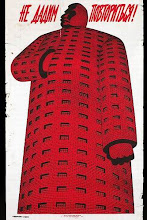Since 1982, Texas has executed 439 people - or 37.4% of all those executed in this country. The Lone Star State is an over-achiever in this regard, considering that Texans make up only 8% of the total U.S. population.
Of those sentenced to death in Texas, one man's case has recently garnered national scrutiny. Independent investigations undertaken by the
Chicago Tribune and a newly created Texas Forensic Science Commission - as well as an expose in the most recent
New Yorker - have provided near irrefutable evidence that Cameron Todd Willingham was innocent. No crime was committed when his house accidentally burned down, tragically killing his children who were sleeping inside. This evidence has come to light too late for Mr. Willingham, who was executed by the state of Texas on February 17, 2004.
Recent right-wing fixation on the false notion that health care reform bills would institute government run "death panels" begs an obvious question: where do these same people stand on the question of the government run death panels that already exist today?

Everyone is familiar with jury trials. Trial by jury is one of the central features of our system of justice, enshrined in the Magna Carta, inherited from the British, and established in the Constitution. During the Cold War, our system of jury trials was one of the many ways that the United States could differentiate itself as a free society in contrast to the Soviet Union, particularly after the highly publicized show trials conducted during Stalin's purges in the 1930's.
But few people understand the mechanics of how our fellow citizens are called upon to serve on twelve-person panels to decide whether a convicted murderer lives or dies.
Whenever a local prosecutor or a United States Attorney decides to seek a death sentence, jurors are selected in a process that includes "death qualification." In a capital case, the same jury decides both whether to convict the accused and then - if the defendant is found guilty - whether to impose a death sentence. Before the trial begins, the prosecutor and judge ask questions to determine whether potential jurors are willing to impose a death sentence. Thus, all juries in death penalty cases are skewed. Only those people who have no moral qualms with the death penalty can serve.
Research has demonstrated that these "death qualified" jurors are more likely to accept the prosecution's case, believe the police, and convict the accused. People who are opposed to the death penalty because they are concerned about possibily executing an innocent person are likely to be more skeptical of the state's case. But anyone with this firmly held belief will not serve on a capital jury. Moreover, the very process of asking jurors questions about punishment before they have heard the evidence distorts the trial. Jurors who are asked questions relating to punishment before the trial has begun could easily conclude that guilt is a foregone conclusion. Why else would both the prosecution and defense lawyers spend so much time talking with them about the death penalty?
Defense lawyers can also ask potential jurors if they are willing to impose a life sentence. Those who say that they would invariably vote for death upon a conviction of first-degree murder also should not serve on the jury. But an inexperienced defense lawyer can easily get trapped with jurors who say that they can consider both punishments - even when those jurors would almost invariably vote for death. This phenomenon is not surprising. The prosecutor has just explained that the law requires all jurors to consider life and death. People are reluctant to admit, in front of a judge, that they are unwilling to follow the law. Regardless, the defense is always stuck with jurors who say that they are willing to vote to execute their client.
The macabre death qualification process presents lawyers with a strategic dilemma - particularly when their client's culpability is uncertain. The strategy with the best odds of avoiding a death sentence may very well increase the chances of their client being convicted. The opposite is certainly true. Even when the evidence against the accused is weak, simply pursuing a reasonable doubt defense in front of the same jury that will then be asked to determine the defendant's sentence creates credibility problems. The most effective sentencing strategies include a showing of remorse and an explanation for how or why the defendant committed the murder. It is difficult to persuade jurors on these points if the lawyers have previously argued that their client didn't do the crime.
And such was the situation before the jury that decided Cameron Willingham's fate.
After he was convicted, the same jury that rejected his reasonable doubt defense was presented with evidence at a sentencing hearing before being asked to determine whether he should be sent to death row. The prosecution goes first, presenting evidence of aggravating factors -- those facts relating to the crime or the defendant that make a particular case "deserving" of death. Unfortunately, a jury's decision whether to impose death is not restricted to a consideration of these statutory aggravating factors.
Countless other random or pernicious factors play an important role in determining who gets sentenced to death. When a white victim is killed, odds of a death sentence being pursued or obtained go up significantly. Likewise,
geography can be determinative. Many counties that have experienced gruesome homicides have sent nobody to death row while others end up with dozens of death sentences. In terms of aggressive use of the death penalty, as Texas is to the rest of the nation, Harris County is to the rest of Texas. About one quarter of all people executed in Texas were tried in Harris County (Houston) alone.
Jurors must also consider mitigating circumstances - or factors that help to put the defendant in a more sympathetic light. For the development and exposition of those factors to the jury, the accused must rely on appointed counsel. This chance factor can also play the determining role in whether any particular defendant receives a death sentence from the jury. Justice Ruth Bader Ginsburg remarked that she had "yet to see a death case among the dozens coming to the Supreme Court on eve-of-execution applications in which the defendant was well-represented at trial.”
But, at the end of the day, it us up to the death panel, the twelve people selected in large part based on their express willingness to send someone to the execution chamber. These are the death panels that people of good will ought to be concerned about, considering the countless improper and arbitrary factors that can play a decisive role in the outcome of their life and death decisions.
It is also worth remembering that in every instance in which a person has been wrongfully convicted and sentenced to death, a jury found the evidence of guilt conclusive beyond a reasonable doubt.
Texas not only leads the nation in executions. There have been more
DNA exonerations there than in any other state. Sadly, biological evidence subjec to DNA testing is available in only a small handful of cases. Unless they are independently wealthy, people like Cameron Willingham must rely on the lawyers appointed to represent them. Will those lawyers thoroughly investigate the case, scrutinize the state's evidence, have resources made available to counter the state's experts, and, in light of what they learn, pursue a sensible strategy at trial? Too often, the answer has been no.
The
New Yorker article refernced above ends with an excerpt of Cameron's last words, as the poisons that would shut down his lungs and stop his heart were about to be pushed through his veins. The Texas Department of Corrections includes condemned prisoners' last statements as part of the public record of executions on its
website. Though abridged due to "profanity," this is at least part of what what Cameron had to say before he died:
Yeah. The only statement I want to make is that I am an innocent man - convicted of a crime I did not commit. I have been persecuted for 12 years for something I did not do. From God's dust I came and to dust I will return - so the earth shall become my throne. I gotta go, road dog. I love you Gabby. [Remaining portion of statement omitted due to profanity.]












